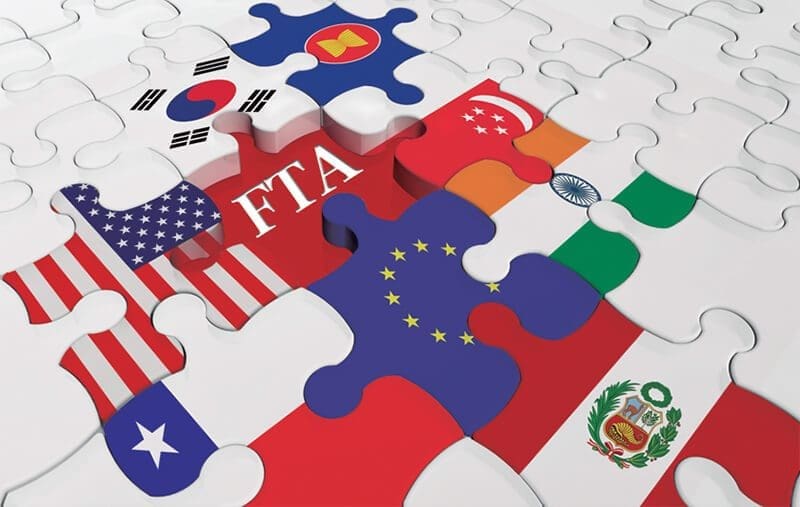The Commerce Ministry of India is actively seeking inputs from exporters across various sectors to address non-tariff barriers and complex rules of origin they face in ASEAN nations. The review aims to facilitate an effective revision of the ASEAN-India Free Trade Agreement, as India requested, to tackle the country’s significant trade deficit with the ten-member ASEAN. This thorough review is expected to be finalized by 2025.
To initiate this process, the Commerce Ministry gathered insights from multiple export sectors in November, allowing them to outline their demands for the forthcoming review. The ultimate goal is to advocate for changes to enhance market access and foster balanced trade within the region.
The trade deficit between India and ASEAN has been a mounting concern. Since the implementation of the ASEAN India Trade in Goods Agreement (AITIGA) in 2010, the deficit has grown substantially. In 2022-23 alone, India’s trade deficit with ASEAN reached a staggering $43.57 billion, with exports totalling $44 billion and imports amounting to $87.57 billion. This disparity prompted an investigation into non-tariff barriers within ASEAN countries.
Among the factors contributing to India’s trade imbalance with ASEAN, non-tariff barriers have been highlighted as a significant obstacle. These barriers have allowed exporters in ASEAN countries to leverage reduced tariffs, while Indian exporters have faced challenges in penetrating those markets. India intends to address these barriers during the review process and seek resolutions that promote fair trade.
The ASEAN region, consisting of Indonesia, Malaysia, the Philippines, Singapore, Thailand, Brunei, Vietnam, Laos, Myanmar, and Cambodia, accounted for 11.3 per cent of India’s global trade in 2022-23. An EXIM bank study conducted in 2019 revealed that trade imbalances worsened across 13 out of 21 regional sectors, encompassing various industries such as chemicals, alloys, plastics, rubber, minerals, leather, textiles, gems, and jewellery. These sectors accounted for approximately 75 per cent of India’s exports to ASEAN.
India’s Commerce and Industry Minister, Piyush Goyal, has previously highlighted the restrictive barriers imposed on Indian exports, particularly in the agriculture and automobile sectors. Among the concerns raised were non-reciprocal concessions, non-tariff barriers, import regulations, quotas, and export taxes implemented by ASEAN countries. The complexities surrounding rules of origin have also hindered India’s exports, as they determine the value addition required for availing FTA duty concessions.
With extensive inputs from exporters and a detailed review process, the Ministry of Commerce aims to address these trade barriers comprehensively. India hopes to foster greater market access and promote balanced trade with ASEAN nations by identifying and resolving non-tariff barriers and complex rules of origin.

